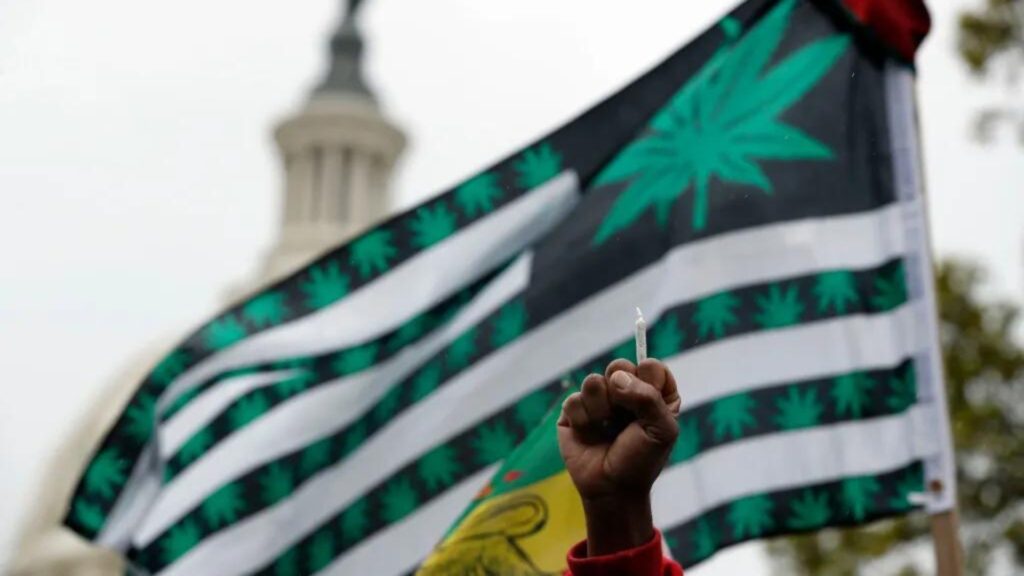In Minnesota, the efforts to legalize marijuana for adult use continue to gain momentum as two more House and Senate committees approved legislation. The House Transportation Finance and Policy Committee passed a bill sponsored by Rep. Zack Stephenson (D) in a 9-4 vote on Tuesday, marking the 13th panel in the chamber to advance the reform. The Senate State and Local Government and Veterans Committee also passed its version of the bill, carried by Sen. Lindsey Port (D), with an 8-5 vote.
As Stephenson highlighted, “Minnesotans are ready for this change.” He believes that current cannabis laws cause more harm than good and that the people of Minnesota should be free to make their own decisions regarding cannabis.
Port shared a similar sentiment, stating that cannabis prohibition has been a failed system with significant costs, especially for communities of color. She sees an opportunity to create a regulatory system that benefits Minnesota consumers and businesses while providing opportunities in the new market for communities most affected by prohibition. The main goals of the legislation are to legalize, regulate, and expunge.
Current Status of Cannabis Legalization in Minnesota
Cannabis in Minnesota is legal for medical use but remains illegal for recreational use. The state implemented a medical marijuana program in 2014, allowing patients with qualifying conditions to access cannabis for therapeutic purposes. However, Minnesota’s medical cannabis program is considered to be among the more restrictive in the United States, with a limited list of qualifying conditions and only non-smokable forms of cannabis allowed, such as pills, oils, and vaporizers.
House and Senate Committees Advance Legislation
Both versions of the bill have undergone numerous amendments, with the Senate panel adopting a comprehensive substitute from the sponsor to address concerns from industry stakeholders. This amendment introduces two new licensing categories, modifies license application and transfer provisions, grants cities and counties more regulatory control, and consolidates previously distinct sections, among other revisions.
The Democratic-Farmer-Labor party, currently holding majorities in both the House and Senate and control over the governorship, is confident that legalization will be enacted soon. Governor Tim Walz (D) has included funding for marijuana legalization and expungements in his biennial budget request, anticipating millions of dollars in cannabis tax revenue for the state.
The legislation, an iteration of the 2021 House-passed bill from former Majority Leader Ryan Winkler (D), has garnered support from the advocacy coalition MN is Ready. The governor has also called for supporters to join lawmakers and the administration in pushing for legalization this session, urging people to sign a petition backing the reform.
The Goals: Legalize, Regulate, and Expunge
The revised bills advancing through committees are consistent with Winkler’s legislation, with a few key changes and newly adopted amendments. One example is the addition of a new license category for businesses selling “lower-potency edible products.” These businesses will face reduced regulatory requirements and can permit on-site consumption if they have a liquor license.
Throughout the committee process, industry stakeholders have pushed for further changes to ensure that businesses entering the market under the 2022-enacted law are not excessively impacted. The House committee has rejected amendments to change the legal age for cannabis consumption from 21 to 25, criminalize operating a motor vehicle or school bus under the influence of cannabis, and revise provisions of law concerning driving or causing harm while under the influence of cannabis.
The next step for the House bill is the Commerce Finance and Policy Committee, which will consider the large-scale amendment on licensing before advancing the proposal to additional committees. The Senate bill will head back to the Judiciary and Public Safety Committee for further consideration.
What Was Added to the Minnesota Cannabis Legalization Bill?
Key components of the revised marijuana legalization bills, HF 100 and SF 73 include:
- Allowing adults 21 and older to purchase up to two ounces of cannabis and cultivate up to eight plants (four mature).
- Social equity promotion through diverse licensing and higher scoring for equity applicants.
- Automatic expungement of prior marijuana records.
- Possibility for municipalities and counties to own and operate government dispensaries.
- Approval of on-site consumption permits for events and permitting cannabis delivery services.
- Banning local municipalities from prohibiting marijuana businesses while allowing “reasonable” regulations on operation times and locations.
- An 8% tax on retail cannabis sales, with revenue funding substance misuse treatment programs and grants to support farmers.
- Establishment of a new Office of Cannabis Management, responsible for regulating the market and issuing cannabis business licenses, including a designated Division of Social Equity.
- Consideration of people living in low-income neighborhoods and military veterans who lost honorable status due to a cannabis-related offense as social equity applicants eligible for priority licensing.
- Fixing an issue in the current statute that prohibits liquor stores from selling THC products.
- Including language banning synthetic cannabinoids, consistent with Board of Pharmacy rules implemented last year.
As the push for marijuana legalization in Minnesota continues, the amended bills have incorporated stakeholder feedback and addressed various concerns. These changes reflect the legislators’ commitment to creating a fair and inclusive system for the state’s residents and businesses.
Additional Committee Considerations
The progress made by both the House and Senate committees highlights the increasing support for cannabis legalization in Minnesota. With Democratic-Farmer-Labor party officials confident about the legislation’s enactment, the state may soon see the end of cannabis prohibition and the beginning of a regulated market that benefits consumers, businesses, and communities alike.
As the bills advance through additional committees, further revisions and amendments may be introduced to ensure a comprehensive and effective regulatory framework. Stay tuned to isweedlegalin.com for the latest updates on Minnesota’s marijuana legalization efforts and how these developments may impact you.






